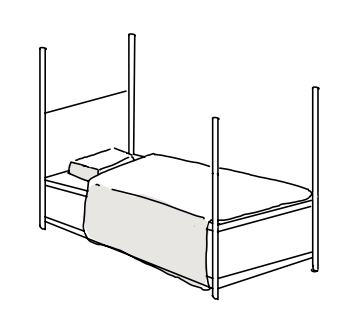The average American adult spends 6.5-8 hours sitting per day. The average student spends 8-10 hours sitting per day. Whether someone is sitting behind a desk, behind a wheel, or even just in bed, it adds up. This is over 20 years of one’s life span wasted just sitting. Sitting or lying down for long periods of time isn’t just bad for mental health, but it can also cause long term problems. When someone sits, it uses a lot less energy than when someoneone stands or moves, causing health concerns.
Heart disease, diabetes, weight gain, depression, dementia and high blood pressure are just some of the risks of sitting for long periods of time. A human’s heart, bowel and cardiovascular systems work more effectively when standing upright. Sitting causes bones and muscles to weaken and lose large amounts of muscle. The hip flexor muscle shortens, leading to future problems with hip joints. All of these factors of sitting also increase the risk of anxiety and depression.
As people grow older, the time they spend on physical activity grows smaller and the more unhealthy they become. Research done by the Mayo Clinic found that those who sit for eight or more hours a day with no physical activity, are more at risk of dying in ways similar to obesity or even smoking. This study also found that even if one exercises, they still risk health problems like metabolic syndrome, but 60-75 minutes of moderately intense physical activity should do the trick to potentially have a counter effect on prolonged sitting.
Other ways to help reverse the effects of sitting could be standing instead of sitting, taking a break from sitting every 30 minutes, or even walking on a treadmill while working. Exercise is very important for a person’s health. Participating in physical activities helps one’s mental well-being, helps to maintain muscle tone, helps with bone strength, and helps to burn calories, all around lifting one’s mood. Not only will one’s lifespan potentially be longer, but it is also proven to boost mood and energy levels which help with better sleep.
The World Health Organization has developed a global plan to help countries increase physical activity by making new policies that provide appropriate roads for biking and walking. Their goal is to create a 15% reduction in the global prevalence of the lack of physical activity by 2030. Hopefully this is enough motivation for people around the world to build more activity into their days.
















